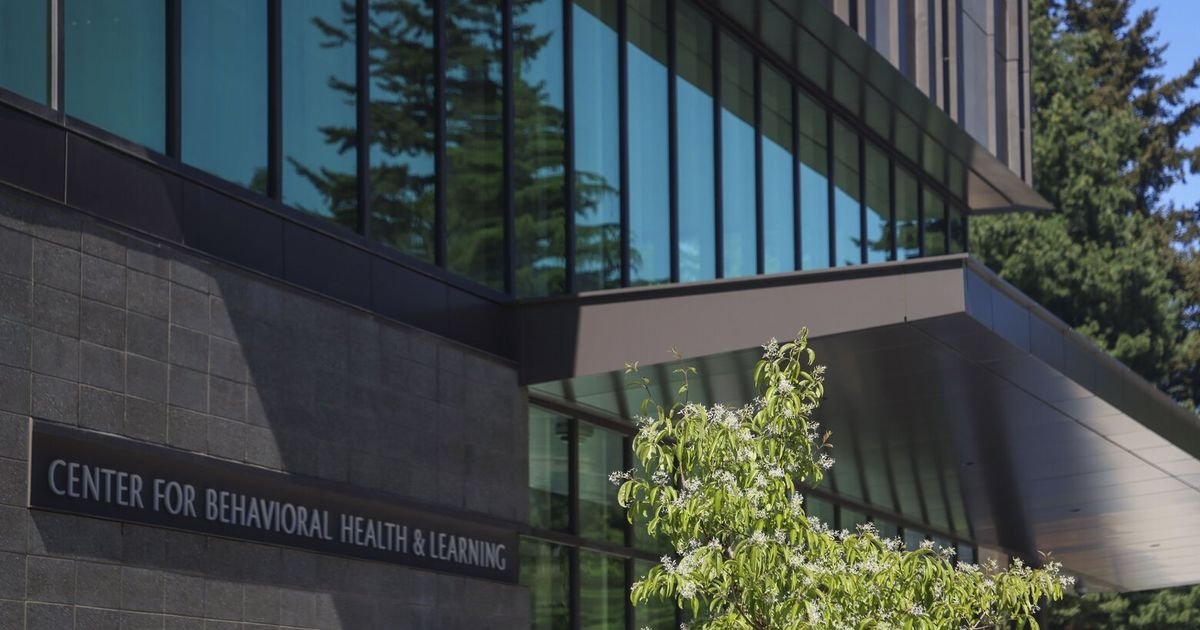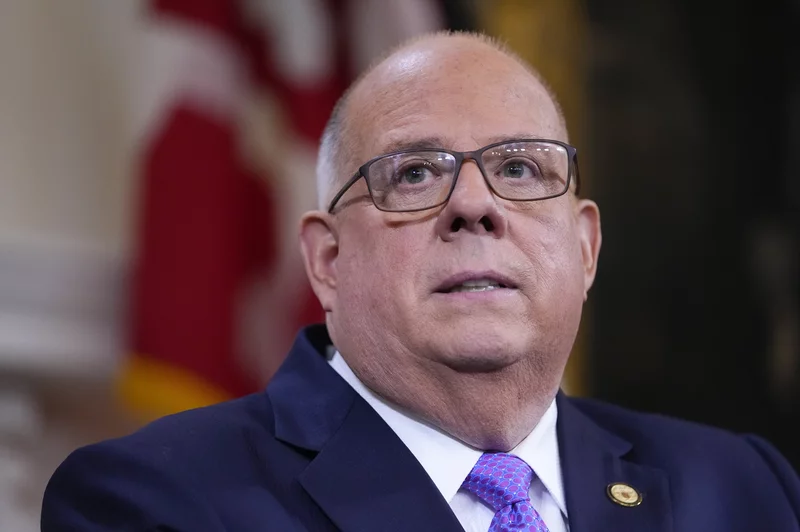A backlog of patients are in short-term facilities or emergency rooms, waiting to get the help a new UW hospital was built to provide.
A backlog of patients are in short-term facilities or emergency rooms, waiting to get the help a new UW hospital was built to provide.

In May, the University of Washington opened a highly-anticipated $244 million behavioral health hospital, aimed largely at providing long-term care to patients involuntarily committed for mental health needs.
Just six months later, two-thirds of the beds meant for those patients sit empty. Patients, meanwhile, are sitting in short-term facilities or emergency rooms, waiting to get the help the UW facility was built to provide.
UW’s Center for Behavioral Health and Learning halted admissions for long-term patients in November, and only started admitting them again last week on a limited basis.
A UW Medicine executive said they stopped accepting patients because the King County Department of Public Defense is objecting to taking on these patients’ cases. But public defenders say these cases shouldn’t all fall to them, citing their own workforce shortages and a lack of state funding.
Without public defenders to represent those patients in court, their cases cannot move forward, and the hospital has no authority to keep them long-term.
“It sets us back years,” said Ian Goodhew, the associate vice president for medical affairs at UW Medicine. “In terms of providing the care that the building was meant to provide and the people in it. It’s delaying tackling an issue that we’ve all — and that includes public defenders, the court, hospitals, the legislature, the old governor and the new governor — have been working to address, which is a shortage of behavioral health care in the state.”
Matthew Sanders, the interim director of the King County Department of Public Defense, said the agency doesn’t want anyone facing involuntary treatment to go unrepresented or untreated.
But he said public defenders are facing a broader staffing crisis that limits their ability to take on new work.
“The cases referred to … have historically been state work, and DPD believes it remains the responsibility of the state government to secure representation for these cases,” Sanders said in an email to The Seattle Times.
Sanders also noted that King County public defenders are taking short-term civil commitment cases, as well as long-term cases for patients who were already their clients.
The patients in question are being held under the Involuntary Treatment Act, Washington’s set of laws that determine whether someone has a serious enough mental illness to be institutionalized against their will. These patients are not facing criminal charges, but they are deemed so mentally ill they either can’t meet their own basic care needs, or pose a danger to themselves or others.
To be institutionalized in King County, a judge at Involuntary Treatment Act Court — held in a small courtroom at Harborview Medical Center — must determine whether a patient can be held for stints of 14, 90 or 180 days in a psychiatric facility, such as UW’s behavioral health hospital.
Goodhew sent a letter last week to Sanders and to King County Superior Court Judge Hillary Madsen, who oversees involuntary treatment court, saying that UW had to halt admissions for civil commitment patients because it couldn’t get enough defense attorneys to represent them for these hearings.
UW reopened admissions last week, but it is only taking patients whose cases originated in King County or who are coming directly from Western State Hospital.
“We’re starting to worry about losing all the staff we’ve recruited because they literally had nothing to do,” Goodhew said. “The irony of this is that we had this major crisis we’ve worked on for the last five or six years, and then all of a sudden we have care providers that don’t have patients.”
The UW facility is now staffed to care for about 50 civil commitment patients, and could eventually take as many as 75. At its peak, Goodhew said, there were 39 patients in those beds. When they closed admissions in November, the number had dropped to 19. After reopening admissions last week, he said they were back up to about 25 civil commitment patients.
“I don’t know how many times our folks had to say, ‘Sorry, we’re on an admissions hold,’” Goodhew said. “But if we were at 39 and we dropped down to 19, that gives you an idea. My guess is it probably impacted two or three dozen.”
Why is this happening?
Washington has struggled for several years to find places to treat civil commitment patients. Most used to be sent to one of the state’s two psychiatric hospitals for long-term care, either Western State in Lakewood or the much smaller Eastern State in Medical Lake.
In 2018, then-Gov. Jay Inslee announced a five-year plan to revamp the state’s mental health system. It called for the state to stop placing civil patients at the state hospitals, instead using that space primarily for patients coming out of the criminal court system. The civil patients instead would be treated at smaller, community-based facilities.
UW’s new hospital is intended to be a key part of this system, filling a crucial need for civil involuntary commitment beds.
When patients were treated at Western State Hospital, the state had an agreement with Pierce County’s office of public defense to provide legal representation for those in long-term care. But, Goodhew said, there was no clear path for who would take civil patients’ legal cases following Inslee’s plan, when patients were to be dispersed to other community facilities.
Goodhew said that because the new facility is in King County, UW Medicine officials thought King County public defenders should take on the cases of patients who came there.
In the letter, he said King County and UW began seeking funding from the state Legislature last January to provide legal representation for the state of Washington and the involuntary treatment patients anticipated at the new facility.
The Legislature granted $600,000 in funding to the state, as well as $900,000 to King County to conduct commitment hearings at state-operated facilities within the county.
“At no point during or after the legislative process did King County indicate that it would not utilize these funds or that these funds were insufficient to provide the representation required to open the (hospital),” Goodhew wrote. He said members of the department of public defense toured the facility and even began setting up offices there.
But King County spokesperson Amy Enbysk said the county had initially asked for $1.8 million for court services related to the new UW facility, later paring their request down to $1.5 million. They estimated that about $800,000 of that would be needed for public defense costs.
Similarly, they requested $1.8 million for increased court costs stemming from the other state-operated facility in King County, Tukwila’s Olympic Heritage Behavioral Health Hospital.
Ultimately, the state only provided $900,000 to cover all of the increased costs of long-term commitment hearings across King County, Enbysk wrote in an email.
Enbysk also said that while King County anticipated that its public defenders would represent the patients coming into the UW hospital, there was no explicit agreement to do so.
“The state did not fund the full request, so King County would not be able to commit to subsidizing these operations,” Enbysk wrote. “However, we are committed to working with the state on possible solutions to the challenging issue of behavioral health staffing.”
Rep. Nicole Macri, D-Seattle, said she was surprised to hear King County wasn’t using the $900,000 allocated. But she acknowledged there has been a lack of clarity around who should take on those clients.
“For many, many, many years we’ve had state-operated beds for people on long-term involuntary commitment located at Eastern and Western state hospitals,” she said. “So the court systems in Pierce and Spokane counties have been accustomed, and built up expertise. There is something to be said about King County DPD being overwhelmed but also not having built up expertise on these kinds of ITA cases,” she said.
Sanders, the interim director of King County’s public defense agency, also said the money doesn’t make up for a critical shortage of attorneys.
“DPD wants to be a part of finding a solution to this statewide problem, but we do not have the staff to take on the work of handling long-term commitment petitions, regardless of funding, given the shortage of experienced attorneys to handle the work,” Sanders said in an email.
‘Every idea is on the table‘
Lawmakers said they are considering solutions for both the short and long-term, but their priority is getting patients into empty beds as quickly as possible.
Sen. Manka Dhingra, D-Redmond, said “every idea is on the table.”
“It’s truly unfortunate we have these amazing beds not being utilized,” Dhingra said.
She said potential short-term fixes could include expanding contracts with third-party law firms, such as the Collective Law Group which now represents many ITA patients, to allow them to follow patients and represent them wherever they’re transferred.
Another option, she said, would be to expand the state Office of Public Defense’s authority to take on some of these cases. In the past, she said, that state agency had limited scope and couldn’t do direct representation. She said the Legislature recently authorized that office to represent people civilly committed as “sexually violent predators.” A similar change could be made to allow them to represent additional civil patients, Dhingra said.
Lawmakers also could try to work with the local counties that patients are being referred from, to see if local defense agencies would be willing to continue following their cases, she said.
She acknowledged the workforce challenges that King County Department of Public Defense cited, and said the Legislature hopes to make some moves to bring more people into public defense work, including student loan forgiveness.
Macri said as the footprint of state-run psychiatric facilities grows, the Legislature should try to clarify where the responsibility for patients lies.
“We went from a long time of just having two counties with state-run beds, at Eastern and Western state hospitals,” she said. With King and Thurston County recently opening facilities, and Clark County soon to follow, she said, it’s “well past time to clarify this.”
“This issue is really coming to a head because of the large number of beds we’ve been able to bring online in a short amount of time,” she said.
Macri said she’s optimistic that the county and UW will reach a solution in the short-term, as well.
“It’s not acceptable to me that the most vulnerable psychiatric patients in the state are bearing the brunt of disagreement or lack of clarity in the law,” she said.
Discover more from World Byte News
Subscribe to get the latest posts sent to your email.





The opinions expressed in reader comments are those of the author only and do not reflect the opinions of The Seattle Times.